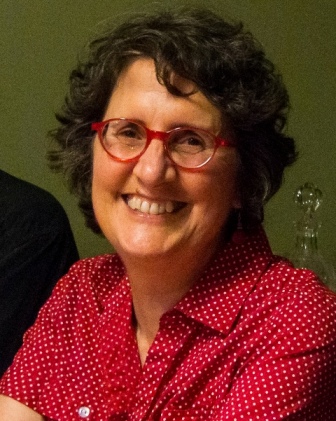Bill could fix flaw imposed by Supreme Court on Title IX
A federal bill could repair a flaw imposed by the Supreme Court on Title IX more than 20 years ago that makes it harder to address sexual harassment in education than in employment.
Senators Bob Casey (D-PA) and Mazie Hirono (D-HI) introduced the SAFER Act with multiple co-signers and support from the likes of the National Women’s Law Center, Know Your IX, and other women’s advocates. The Students’ Access to Freedom and Educational Rights (SAFER) Act would bring management of sexual harassment under Title IX closer to management under Title VII of the Civil Rights Act of 1964, which covers harassment in employment. There’s no legitimate reason why sexual harassment should be defined and treated differently at work or at school, but that’s what the Supremes did, making it much harder for student survivors of sexual assault to get help.
Some background: As the movement against sexual violence increasingly employed Title IX in the 1990s, two Supreme Court decisions in 1998 and 1999 kneecapped efforts to hold school districts and administrators responsible for turning a blind eye to sexual harassment and assault. In Gebser v. Lago Vista and Davis v. Monroe County Board of Education, the Supreme Court arbitrarily set a higher bar in education. Complaints under Title VII could succeed if the sexual harassment was severe or pervasive enough to create an objectively hostile workplace environment. But under Title IX, complainants must show that the sexual harassment was severe, pervasive, and objectively offensive–all three–and deprived the student of educational opportunities. The court set other differences, too, seemingly more concerned about the discomfort of boys accused of sexual harassment than about helping the victims, judging by the justices’ comments.
The SAFER Act would remove these “unreasonably burdensome” standards under Title IX. And it does more, strengthening protections against harassment based on sex that include sexual orientation and gender identity. It mandates “climate surveys” in K-12 schools, not just colleges and universities, to assess levels of sexual harassment, sexual assault, stalking, and domestic and dating violence. Other provisions fix a number of other flaws imposed on Title IX over the years.
A companion version of the SAFER Act was introduced in the House of Representatives by Reps. Jahana Hayes (D-CT), Debbie Dingell (D-MI), and Deborah Ross (D-NC). Other organizational supporters include the Human Rights Campaign, It’s On Us, and the National Disability Rights Network.
There’s more interesting news from Congress: A report by the House Ways and Means Committee examines colleges’ justifications for paying exorbitant salaries and benefits to football and men’s basketball coaches, and whether they should be paying more in taxes.
And on the electoral front, voters elected a record number of women to the U.S. House of Representatives (124 of them), to state governors offices (12), and to state legislatures. It’s progress, but still a long way from proportionate representation.
Elsewhere
More than three weeks have passed since my last blog post, so there’s lots of news to catch up on.
From the department of stellar journalism: An investigation by USA Today found that few sexual offenders get expelled from U.S. colleges and universities, contradicting exaggerated claims by men’s rights activists. A separate USA Today investigation of failure by Marshall University, Huntington, West Va. to stop a serial rapist led the university to seek a new Title IX coordinator. Again at USA Today, an article highlights six colleges and universities that chose to hide their sexual misconduct data. The Nation magazine profiled Princeton University to show how universities fail sexual assault survivors. The Washington Post described the toxic sexism in male-controlled elite girls’ soccer clubs, which are training grounds for college and professional teams. The Washington Post also featured students who are building networks to make emergency contraception more available on campuses. Shades of Jane!

A vice president at North Central College, Naperville, Ill. penned an insightful exploration into how “Fifty Years Later, Title IX Does Not Fulfill Promise to Black Women.” U.S. universities are failing to diversify their faculties, a separate study found.
Among survivors of sexual misconduct who are speaking out about mismanagement by their colleges and universities, one student described her experience with Emory University. A Washington University, St. Louis medical student wrote about harassment that led her to drop plans to seek a joint Ph.D. Around 150 people attended a forum demanding greater campus safety at California State University, Sacramento following four recent sexual assaults. Four student groups demanded changes to protect students at Louisiana State University. Students protested the lack of a permanent Title IX coordinator at Doane University, Lincoln, Neb. In Atlanta, Emory University students rallied in support of sexual assault survivors. Students at California State Polytechnic Institute, Humboldt held a speak-out about difficulties getting help under the Title IX process.
The parents of a women’s soccer team captain sued Stanford University for alleged “institutional bullying” that led the student to kill herself. Parents of an eighth-grader sued Loudon County (Va.) Public Schools, claiming officials’ failure to take reports of sexual harassment seriously led the boy to attempt suicide. Separately, a grand jury reported institutional failures by Loudon County school officials in responding to two sexual assaults at high schools last year, and the school board fired the superintendent. A student and his parents sued St. John’s Northwestern Military Academy, Delafield, Wisc., for alleged child sex abuse. A digital group chat among football players at Amador High School, Sutter Creek, Calif. included sexist, racist, homophobic, and bullying speech; officials canceled the rest of their season. A West Virginia University student sued Pi Lamba Phi fraternity and a defunct Morgantown, W. Va. nightclub after allegedly being raped by a fraternity member.
The U.S. Supreme Court rejected an appeal by the Fairfax County School Board, Alexandria, Va. and a trial will proceed alleging that officials failed to prevent a sexual assault. The family of a student at Talawanda Middle School, Oxford, Ohio sued a teacher for allegedly groping the 13-year-old girl. A former dean sued Liberty University, Lynchburg, Va. claiming he was fired as retaliation for reporting illegal activity including obstruction of Title IX. U.S. Courts of Appeals are split on the definition of “pervasive” sexual harassment, with some arguing that it’s not pervasive if there hasn’t been a sexual assault — which others deride as a “one free rape” policy before administrators can be held accountable.
Three women sued the University of Vermont for mishandling rape complaints, including one against basketball star Anthony Lamb, now with the NBA’s Golden State Warriors. A professor at California State University, Chico who had an inappropriate sexual relationship with a student under his supervision has been accused of threatening two faculty women who reported it; the university granted him tenure and named him an “outstanding professor.”
A former women’s softball assistant coach at the University of California, Santa Barbara sued the state Board of Regents for retaliation, claiming she was fired for reporting financial inequities between men’s and women’s sports. A district court denied class-action status to former women’s lacrosse players who are suing the California State University, Fresno. Students filed three Title IX lawsuits against the University of Central Oklahoma for diverse reasons alleging athletics inequities and mismanagement of sexual harassment. A federal judge ordered the State College (Penn.) Area School District to stop discriminating against girls who want to play soccer.
The ACLU of Texas filed Title IX complaints against two school districts that adopted anti-LGBTQ policies, the Frisco and Keller Independent School Districts. A bill in the Virginia State legislature would block transgender athletes in all grade levels from participating in sports matching their gender identity. Christian and Muslim parents sued Bethel Local Schools, Tipp City, Ohio, over a policy allowing students to use bathrooms matching their gender identity. A policy of the North Carolina State Health Plan for Teachers and State Employees that excludes insurance coverage for gender-affirming health care is illegal, a district court ruled.
The president of the Association of Title IX Administrators and his consulting firm have been sued by a former executive for fraud and retaliation. A Columbia University, New York graduate sued a professor for alleged gender discrimination and retaliation.
On the up side
Voters in Alameda County, Calif. elected their first African American district attorney — Pamela Price, a key plaintiff in the first Title IX lawsuit about sexual harassment, Alexander v. Yale in 1977. Price is a major character in my book 37 Words. Also, a Brown University student became the first woman on a NCAA Division I baseball team.
Where you’ll find me
Tuesday, February 7, 2023, 7:00 p.m. CT — I’m honored to be speaking at Iowa State University, giving the 35th Mary Louise Smith Chair Lecture hosted by the Carrie Chapman Catt Center for Women and Politics. I’ll meet with students in the late afternoon and speak at 7:00 p.m. in the Durham Great Hall of the Memorial Union.
*** Would you like to set up an in-person or Zoom session with me for your organization or book club? Reach me through my Contact page.***
You can sit in on my 50-minute conversation about Title IX and 37 Words with Georgia Institute of Technology President Angel Cabrera, part of his “Conversations with Cabrera” series:
More online talks: Check out a video of my 25-minute talk at wonderful Left Bank Books in St. Louis. You can watch my six-minute interview on the Bridge Street morning show on WSYR-TV, the ABC affiliate in Syracuse, N.Y. Or, watch the video of an October 19, 2022 online conversation about Title IX and 37 Words hosted by the University of Texas at Austin’s Center for Women in Law; find it here.
The Nation magazine published an excerpt from my chapter 5, which introduces Title IX’s application in the movement against sexual violence. I published an article in the Washington Post’s Made by History section, this one on “The true mother of Title IX. And why it matters now more than ever.” The Christian Science Monitor included 37 Words in two articles — a cover story on “Title IX at 50” and a sidebar examining the racial gap among women athletes in colleges. Read about the Supreme Court’s history of curtailing Title IX and other civil rights laws in my article in The Washington Post Made by History section. The Washington Monthly gave 37 Words a fine review — check it out. See other previous appearances and media coverage of 37 Words listed here.
Here are links to order your copy of my book 37 Words: Title IX and Fifty Years of Fighting Sex Discrimination (The New Press, 2022).
#TitleIX #37Words #TitleIX50th










